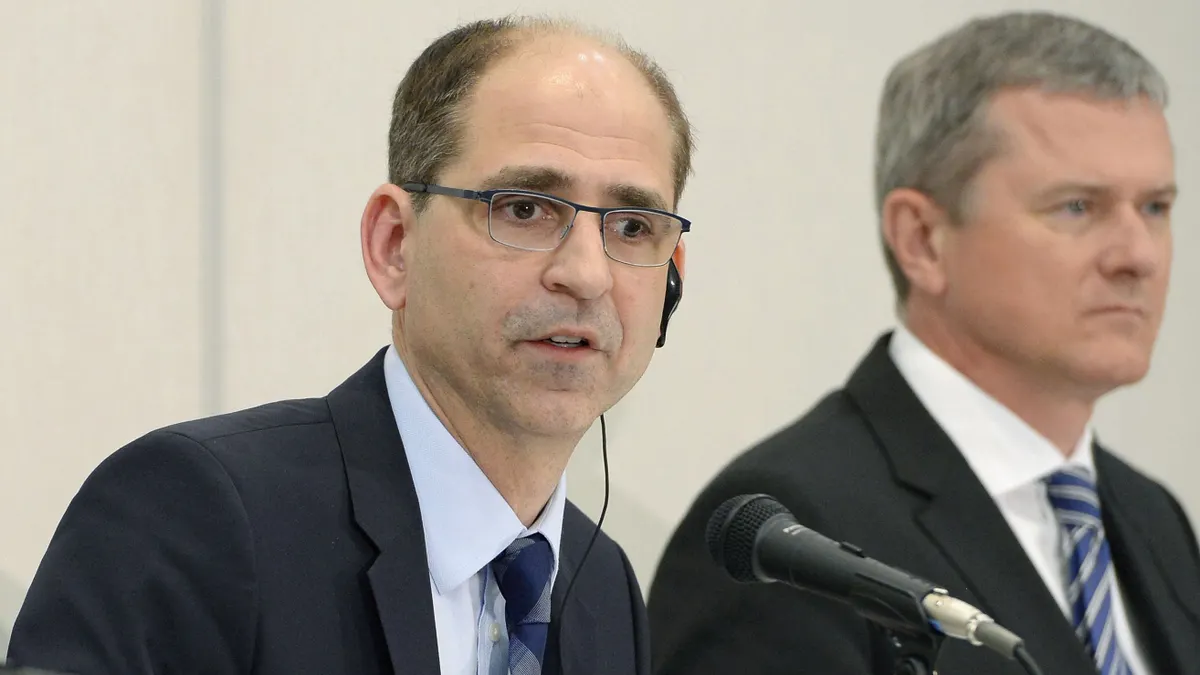The former head of cancer drugmaker Seagen has joined a new startup involved in what’s recently become a competitive corner of oncology research.
The startup, Ottimo Pharma, emerged from stealth Monday with the backing of U.K. venture firm Medicxi and David Epstein as its chairman and CEO. It is developing a type of cancer drug that blocks two molecular pathways — PD-1 and VEGF — implicated in tumors’ ability to grow and evade detection from the immune system. The company intends to ask regulators next year to begin its first clinical trial.
The startup hasn’t said how much money it’s raised from investors so far or which tumors it intends to target. Nonetheless, its emergence, and Epstein’s involvement, is the latest sign of interest in a potential advance for cancer immunotherapy.
Drugs designed to stifle immune “checkpoints” like PD-1 have changed how dozens of cancers are treated since first coming to market over a decade ago. These drugs, like Merck & Co.’s Keytruda and Bristol Myers Squibb’s Opdivo, spur the immune system to fight tumors. When they work well, they can significantly extend lives of people with advanced cancers. But the majority of people don’t durably respond to treatment, leading drugmakers to search for combinations that can boost immunotherapy’s effects.
That hunt has yielded mixed results. Outside of chemotherapy, many drugs tested in immunotherapy pairings have failed to outperform immunotherapies alone in clinical testing.
One approach that could be different is a single therapy designed to block both PD-1 and VEGF. This year, a drug discovered by China-based Akeso and co-developed by biotechnology company Summit Therapeutics significantly outperformed Keytruda in a late-stage trial in lung cancer.
While that trial took place only in China and likely won’t support a U.S. approval, the result has still sparked interest in developers of other, similar types of medicines. BioNTech, Instil Bio and a few startups have drugs in the works. Ottimo’s drug, a bi-functional antibody called jankistomig, targets PD-1 and the protein receptor VEGFR2. The company says targeting that specific receptor should minimize side effects related to VEGF inhibition, which are associated with hypertension and increased levels of protein in the urine.
“This new medicine is exquisitely designed and offers large potential benefits to patients across a wide range of solid tumors,” said Epstein, in a statement. “It will be exciting to scale the team and deliver on the promise to patients."
Epstein will take on that task after a short stint as the CEO of Seagen, a cancer drugmaker Pfizer acquired for $43 billion last year. Prior to that, Epstein had spent more than two decades in executive roles at Novartis and then another five years advising and building startup companies at Flagship Pioneering.
Former Boehringer Ingelheim Chief Medical Officer Mehdi Shahidi also joined the startup as head of development and CMO. James Sabry, a longtime dealmaking executive at Roche who retired earlier this year, is Ottimo’s vice chairman.
Ottimo’s drug “has the potential to change the face of cancer immunotherapy,” Sabry said in a statement.














